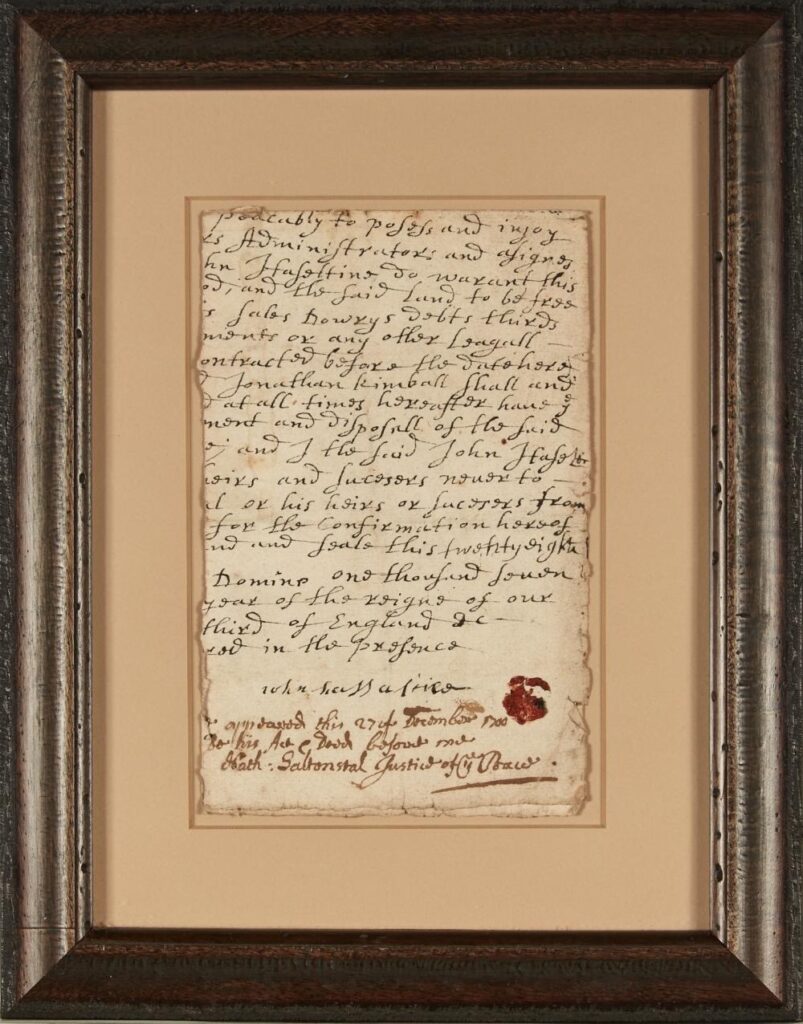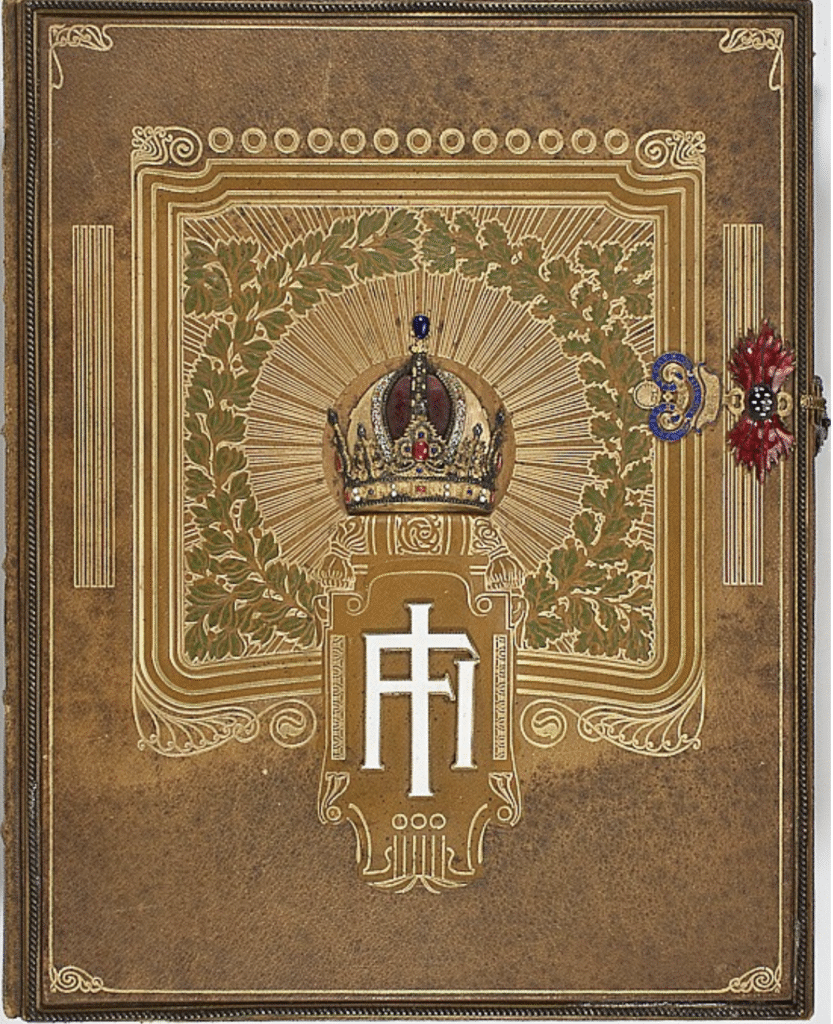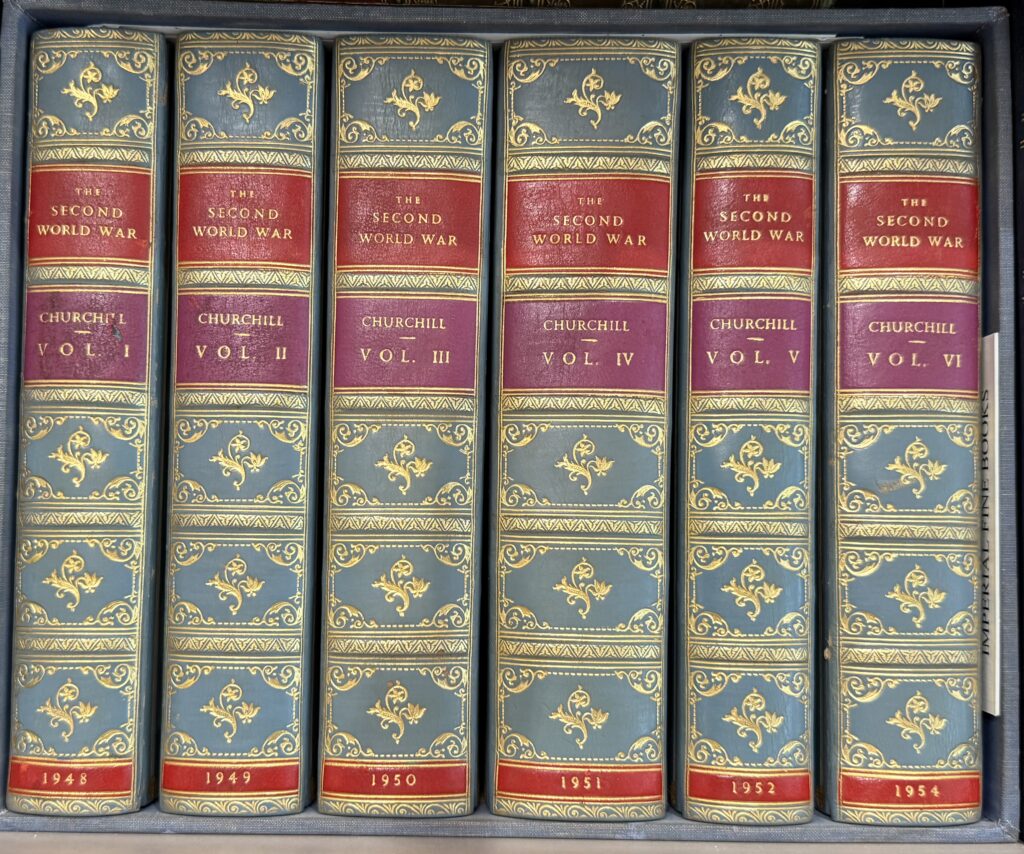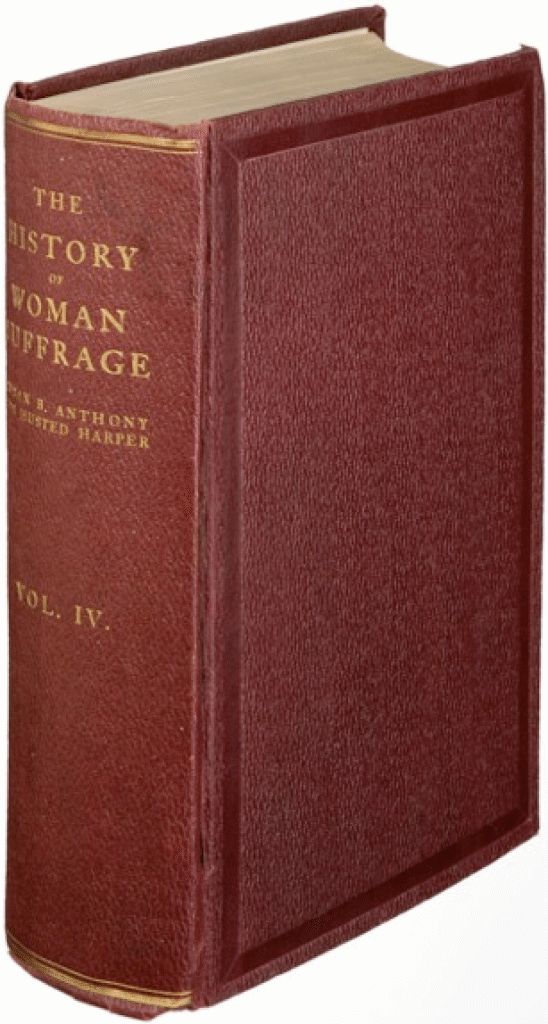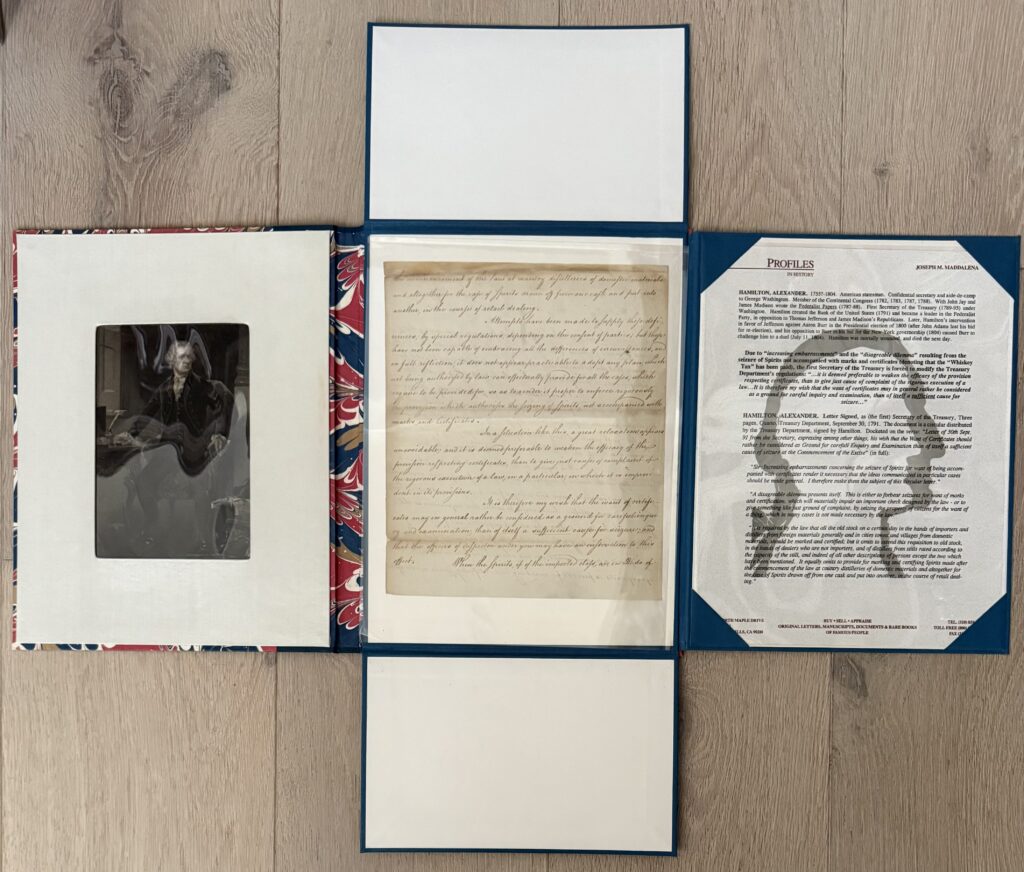NATHANIEL SALTONSTALL, ONE OF THE SALEM WITCH TRIAL JUDGES
SALTONSTALL, NATHANIEL. Document signed as Justice of the Peace. [Vicinity of Salem: 27 December 1700]. A partial indenture or land sale document in a secretarial hand between John Haseltine and Jonathan Kimball, with the ink signature of John Haseltine, and with Nathaniel Saltonstall’s attestation at the foot “Approved this 27 of December 1700 … before me Nath: Saltonstall Justice of the Peace.” 6 1/2 x 4 inches (17 x 19 cm); framed. `
Nathaniel Saltonstall (1639-1707) was born at Ipswich and his family were among the first settlers at Watertown. He graduated from Harvard in 1659. A town clerk from 1668, he was described as “firm and effective in law enforcement, and yet, where allowed discretion by law, humane and flexible.” On May 27th, 1692 Saltonstall was one of six men appointed judge at the Court of Oyer and Terminer to hear the cases against the accused witches at Salem. But Saltonstall resigned in June, possibly over the handling of the trial of Bridget Bishop, the eight-day trial that was the first of the Salem Witch Trials.
In April 1692, Bishop had been accused of “sundry acts of witchcraft” and made responsible for the startling behavior of five young women: Abigail Williams, Ann Putnam, Jr, Mercy Lewis, Mary Walcott, and Elizabeth Hubbard. Spectral Evidence was used against Bishop, and several people claimed her apparition visited them and threatened them if they did not sign her book. The story of her trial is recorded in Cotton Mather’s In Wonders of the Invisible World, her guilt a foregone conclusion due to the damning evidence against her, the apparent discovery of a third nipple on her body which was not located upon a second investigation and because of her own comments in court Mather reported: “there was little occasion to prove the witchcraft, it being evident and notorious to all beholders.” Saltonstall resigned from the court on June 8th 1692 but Bridget Bishop was hanged on June 10th, the first execution of the Salem Witch Trials. It was recorded that Saltonstall was “displeased with the handling of the Bishop case,” and for some time afterward remained “very much dissatisfied with the proceedings.”
